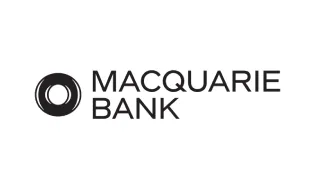- This account was a Finder Awards winner for 2025.
- There are no international transaction fees and no overseas ATM fees, which is great if you like to travel.
- The money in your account earns interest, currently 2%.
Compare other products
We currently don't have that product, but here are others to consider:
How we picked theseFinder Score for bank accounts
We assess multiple product features for transaction accounts from over 100 providers and assign each product a score out of 10.
What is a joint bank account?
A joint bank account lets 2 or more people manage their money from the same account. Couples in a relationship or family members often use joint bank accounts. But friends or housemates can open them together too.
Types of joint account
- Joint transaction account. This a standard bank account for everyday saving and spending. Every account holder should also get linked debit card.
- Joint savings account. These accounts are designed for building up your savings and earning interest. You put money here and try not to spend it. You can link it your transaction account.
- Joint term deposit. Banks will also let you open a joint term deposit. With a term deposit you lock up the money for a fixed period. And over that term you earn a fixed rate of interest.
How to compare joint transaction accounts

Account fees
Look for a joint account that has no account-keeping fees or fees for transactions or withdrawals. If you shop or travel overseas don't forget about international transaction fees.

Access options
Most joint transaction accounts let both account owners move money in and out of the account individually. But it's possible to set up some joint accounts to require approve from all account holders before doing anything.
This is quite useful for joint savings accounts. But not every bank offers this, so check before signing up.

Account management tools
Does the mobile banking app have any extra tools or features that'll help you manage the account, for example budgeting tools or spending summaries? These tools make managing your money jointly so much easier.

Extra perks
Some accounts offer things like cashback when opening the account or ongoing cashback offers when spending.

Payment options
Choose an account that has the payment options you both want to use, for example if one of you prefers Apple Pay while the other prefers Google Pay, look for an account that offers both.
What are the best joint bank accounts?
The best joint bank account for most people is one that gives you easy access to your money without too many fees.
Here are the winners of Finder's 2025 Bank Account Awards. We used 12 months' worth of product data to determine these winners.
These accounts are all available as joint accounts.
- This account finished highly commended in the 2025 Finder Awards in the best bank account category. It also won for best travel debit card.
- You can earn 2% cashback on tap and pay purchases, and with 2 people spending from the account you'll be able to boost the amount of cashback you earn.
- There are no international transaction fees, so if one or both of you like to travel you will save money on fees.
- Suncorp's Everyday Options Account also finished highly commended at this year's Finder Awards.
- You can open up to 9 mini sub-accounts linked to this account which can help you both manage shared expenses and budget for specific things e.g. a holiday fund.
- There are no international transaction fees, so if one or both of you like to travel you will save money on fees.
Pros and cons of a joint bank account
Joint bank accounts are incredibly useful. But they're not right for everyone.
Pros
- Easily manage joint expenses. It's handy to have a joint bank account if you regularly need to pay for joint expenses, such as groceries or household items. This way you won't need to transfer money back and forth to one another or constantly send IOUs; you can simply use the joint account.
- Individual access to the account. Each account holder will receive their own debit card that's linked to the joint transaction account, so you can make joint purchases without the others being present. You'll also receive your own logins to the account online.
- Easily manage bills. With all the money in one place, it makes it a lot easier for couples to manage their personal finances, pay rent and other bills.
Cons
- Both parties can access the money. Because you both have complete access to the account, either person can spend the money. This is why it's important to open a joint account with someone you trust.
- Overdraft facility. If your joint account has an overdraft facility available, it means you can spend more money than what's available in the account forcing your balance to go into the negative. Even if your partner spent the money, you're both liable to repay it. Your credit score may be affected if you can't.
- Division of funds if you separate. If you separate from your partner, dividing the funds in the joint account can be a messy, awkward task. Also, there's nothing to stop the other person from clearing out the account entirely (unless you’ve set it up that all account holders need to approve).
- Loss of privacy. Everyone whose name is on the account will have easy access to the account online and can see the transaction history of all account holders.

"Opening a joint account can be much easier than you expect - my wife and both already had our IDs verified individually with the same bank, and it then only took a couple of clicks to have a joint account opened and activated."
How to decide if a joint bank account is right for you
- Do you both spend money the same way? If one of you is more frugal with your money while the other loves to shop, you'll need to devise a spending strategy before opening an account together. It's a good idea to put together a budget that you're both comfortable with.
- Do you agree on your shared expenses? Some expenses are more obvious to define as shared expenses than others. You should agree on what expenses are shared and what expenses should remain individual expenses.
- Do you trust the other person? If you don't trust the other person to manage your money responsibly, then you might want to reconsider opening an account with them.
- Do you share the same financial goals? Opening a joint account will be much easier if you both have the same or similar savings goals in mind.
- How much money will you each contribute? Will you both deposit the same amount of money into the account each month or will one of you contribute more? For example, if one of you earns a higher salary you might decide they should contribute more.
- Will you keep a personal bank account as well? You might decide to open a joint account for your shared expenses and keep your individual bank accounts active for your own personal spending.
How to open a joint bank account
- Start the online application. You can apply for the account on the bank's website. Select the joint account option when beginning the application and be ready to provide names and personal details of all account holders.
- Verify your identities. All account holders will need to verify their identity using their driver's licence, passport or Medicare card.
- Invite the other applicant. Depending on the application process, the bank may require one person to complete the application and then invite the other person to complete their section of the application.
- Select how many debit cards you need. If you'd like all account holders to have their own debit card linked to the account, you can request this during the application process. When your account is approved, you'll each receive a debit card in the mail.
How do I close my joint account?
If the account has an 'either party to sign' requirement you can close the account on your own by simply contacting your bank. However, if the account has a 'both to sign' requirement you'll also need the other party's signature to close the account. If the other party is unwilling to close the account you can request for the bank to freeze it.
Before the account is closed check all the direct debits that come out of the account and update the bank account details (these are things like your Netflix subscription and phone plan).
Frequently asked questions
Sources
Ask a question
38 Responses
More guides on Finder
-
Australian debit card statistics
Explore how the typical Australian uses their debit card in our detailed guide to debit card statistics.
-
Virgin Money Savings Accounts
Compare Virgin Money's savings and transaction accounts.
-
Virgin Money Go Account
Virgin Money Go bank account: Pay no monthly account fees, earn points as you spend and earn bonus interest on a linked Virgin Money savings account.
-
Australian Mutual Bank savings and bank accounts
Australian Mutual Bank offer different types of savings accounts depending on your age, your goal and your financial position.
-
AMP SuperEdge Pension Account
Use your SMSF pension money wisely through an account that gives you unlimited free transactions to spend it along with interest to help keep it growing.
-
Gateway Bank savings accounts
Gateway Bank Ltd provides its members with different types of accounts, which you can choose from as per your needs.
-
Travel debit cards to use overseas
A travel debit card is just a regular Australian debit card with less international fees an charges, making it a great option to use overseas. See a range of debit cards suited for travel in this guide.
-
Best bank accounts in Australia
The best bank account will help you manage your everyday spending with low fees and easy access to your money. Check out our Top Picks curated by experts.
-
Compare Debit Cards Australia
When used wisely, a debit card provides you with great flexibility when it comes to handling your everyday financial needs.
-
ME Bank savings and bank accounts
ME Bank is an online bank that offers a high interest savings account and fee-free everyday bank account. See ME's accounts and latest rates here.






Hi,
I have a joint bank account with my mother which has a very substantial amount of money in it.
My question to you is, if my mother was diagnosed with a horrendous condition such as dementia or terminal cancer, can a public trustee gain access to our money at all?
Also, my mother lives with me. We own our home with my name being the first name on the title for the house. Basically, I do all the financial responsibilities every day.
Hi Adrian,
The answer to your question depends on the terms and conditions of your joint account.
However, generally speaking, if the account has a right of survivorship, all the funds pass directly to the surviving owner. If not, some of the portions of the fund may be distributed to her estate.
I highly recommend you speak to your bank representative to get specific answers.
Regards,
Alison
With a joint bank account – if one person dies, will the other nominee be able to carry on as normal, or is the account frozen for estate purposes.
Hi Kay,
Thank you for getting in touch with finder. If the bank account is held jointly, ownership of the account will be transferred to the surviving account holder. The account will continue to function as normal. However, I also read that there’s a chance that the bank will ordinarily “freeze” the funds until probate has been granted and an executor is appointed to distribute the assets of the estate. Banking institutions have different rules when it comes to account holders accessing jointly held funds. Some bank accounts require the signature of both account holders to withdraw funds, but many do not. Often the account holders themselves will be able to choose upon opening the account. So you need to check how your joint account is set up.
I hope this helps.
Have a great day!
Cheers,
Jeni
I would like to open and save $50 a month for each of my children who are 14 and 18, but I do not want them to know about this.
They have $3000 each to invest. I would like to continue to invest $50 each on their behalf for the long term and not access the accounts.
Should I open the accounts in their names? Should they be joint accounts with me? What are the tax implications ? Would the accounts be exempt from tax? I obviously want to maximise profits for my children.
Hey Emma,
Thank you for reaching out to Finder.
Regarding your concern on the tax implications, you check our guide on How is Interest Taxed on My Savings Account for more details.
When opening a bank account under their name, it’s possible that they would be made aware of it as a joint account holder either upon application or in the time that the account is open.
You may compare your option from our list Children’s Savings Account. It would be best to consult with your preferred bank directly on the options to open an account with your preferences for your 18-year old.
Before applying, please ensure that you meet all the eligibility criteria and read through the details of the needed requirements as well as the relevant Product Disclosure Statements/Terms and Conditions when comparing your options before making a decision on whether it is right for you. You can also contact the provider if you have specific questions.
I hope this helps.
Best,
Maria
Hi,
My boyfriend and I are looking to open a joint account but don’t want to use either of our banks (ING and NAB)
It seems like a lot of these need linked everyday accounts,
Can you please clarify the ones that don’t need a linked account?
Thank you,
Hi Chelsea,
Thanks for your inquiry.
Yes, there are actually (joint) savings accounts that do not need a linked transaction account and you can compare your options on our savings accounts page. I’d encourage you to play with the calculator (on top of the table) to see which account can give you high-interest earnings. Once you have chosen an account you wish to apply to, simply select the ‘Open’ button to head over to the bank’s website.
I hope this has helped.
Cheers,
May
I have a ANZ account and my partner wants to join in with my account as a joint account.cam I go to the bank and fill out a form and get him to sign. Then I bring it to the bank to get a new card
Hi Dianne,
Thanks for your question.
If your partner is a new customer to ANZ he will need to verify his ID in a branch or Bank@Post location. You can grab the forms but your partner will need to come into the branch anyway.
Hope this helps.